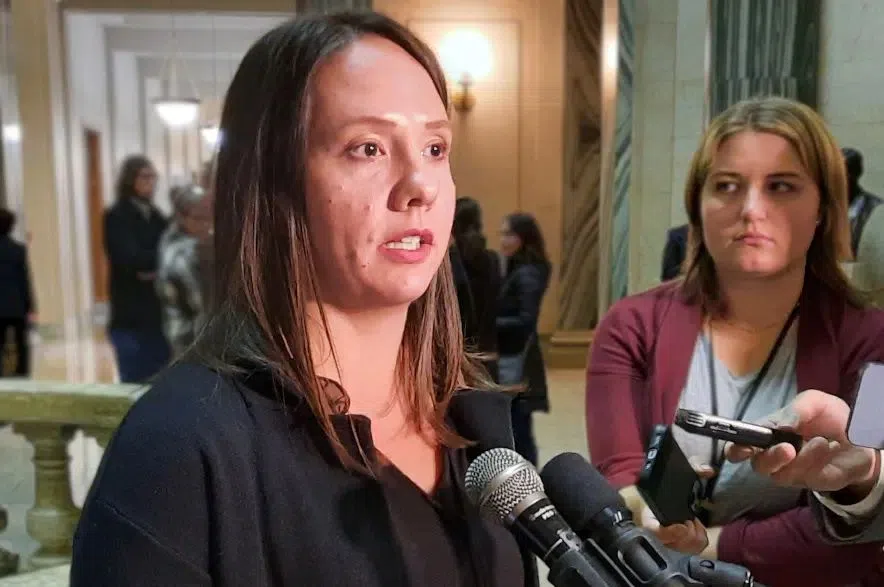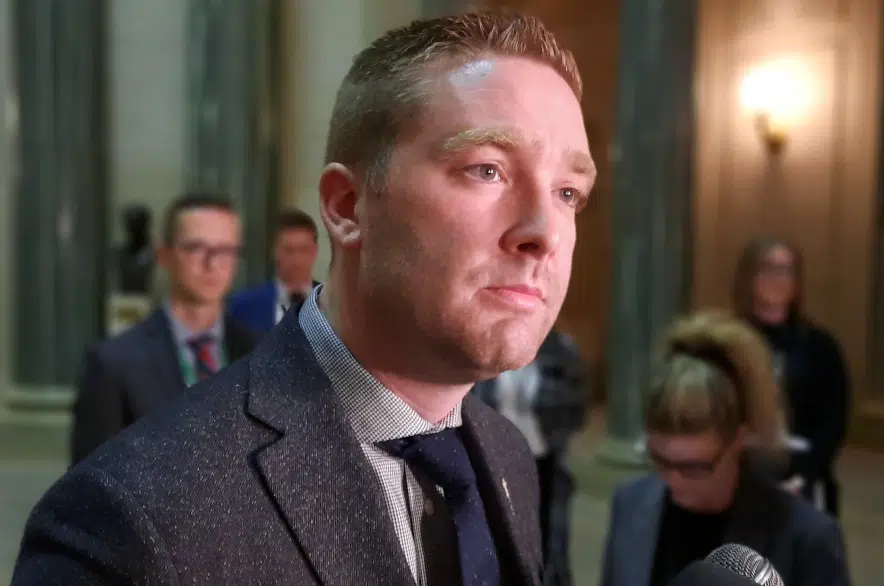The Saskatchewan government and Saskatchewan Teachers’ Federation (STF) continue to point fingers at each other while negotiations seem to remain at a standstill.
On the table are concerns like class size and complexity, violence in the classroom and teachers’ wages.
Both Education Minister Jeremy Cockrill and STF president Samantha Becotte spoke with Evan Bray on the issue Thursday after 10 days of bargaining and five days of conciliation failed to result in a new contract.
Cockrill acknowledged the issues raised by the STF and said he wants to address them. However, he doesn’t see them as contract items.
“In the government’s view, those are not bargainable items,” Cockrill said. “Those are issues that we work on with local school divisions. I guess that’s where myself and the Saskatchewan Teachers’ Federation just have a different perspective on what is meant to be bargained.”
He said those issues simply can’t be part of the contract.
“These are real issues and we want to address those, but the avenue that we address these issues in terms of what our classrooms look like, that’s between government and school divisions,” he said.
“I can say that I’m actively doing that work, meeting with school divisions, engaging with them and trying to find practical solutions for the issues that we do see in classrooms.”
When asked if another avenue to find a solution existed, like forming a committee, Cockrill wasn’t optimistic.
“What came out of those committees was no real practical solutions or options,” he said. “I’m not looking for a bureaucratic solution in terms of issues in our classrooms. That’s what we’re out there engaging with school divisions on.
“I think you’re going to see from government, in the coming weeks, some ideas that we’d like to test out with school divisions.”
Cockrill said he’s looking forward to meeting with more school divisions and discussing the particular needs of each one. As for the bargaining table, he wants the STF to get back to it and work to find a deal.
“The issues that can be bargained — salary, pension and benefits — were there at the table, with a fair deal. We’ve been there all along and we are happy to continue bargaining on those items and trying to get a deal done that’s fair for teachers and is going to work for our schools,” Cockrill said.
The minister said the thought of sanctions — including a possible strike — is concerning and he would prefer to avoid it.
“I think this is what the STF leadership has wanted all along,” he said. “What I’m most concerned about is we’ve seen over the last several years how disruption in school operations has had a very negative impact on our children.”
Cockrill said he wants kids to be in the classroom, enjoying extracurricular activities at schools.
“Our priority is that our children can continue to learn and we think that the way to do that is for the teachers’ federation to come back to the table and let’s continue to work on a deal,” he said.

Saskatchewan Teachers’ Federation president Samantha Becotte says contract talks between the union and the provincial government remain stalled. (Lisa Schick/980 CJME file photo)
Becotte said the STF sees the situation differently.
“This government continues to refuse to engage in the big issues that teachers have been bringing forward for nearly a decade now,” she told Bray.
Becotte said the government is refusing to make commitments to improve teacher and student experiences in the province, having not moved significantly on any of the proposals from its opening position.
When it comes to wages, Becotte said the proposal the government is making “essentially leaves teachers about 10 per cent behind in purchasing power from where they were in 2017.”
She said improvements are needed, in the form of an agreement that “protects teachers from inflation and provides a salary that values them as professionals” in addition to improving the learning conditions of students.
One of the issues raised by the STF is violence in Saskatchewan classrooms. Becotte said when students come to classrooms with increased needs that aren’t supported — whether classes are too large or professional supports like mental health counsellors and educational psychologists aren’t available — students sometimes will act out inappropriately.
“Students get frustrated and often don’t know how to manage that frustration or they don’t know how to express it appropriately and it will come out through behaviour,” Becotte said.
Becotte said that’s not the fault of students, but rather of the government by not supporting students in their schools as a result of underfunding education below the rate of enrolment and the rate of inflation.
“In reality, we shouldn’t have to be fighting for these things. It is a result of government underfunding,” Becotte said when asked if the STF would be satisfied seeing improvements made outside of a contract.
“This government has dwindled away local school divisions’ ability to raise funds, they have dwindled away school divisions’ budgets and really constrained those for so long that we have been brought to this point.”
Becotte clarified that there’s concern that future education ministers will not uphold a commitment to improving conditions if not included in a contract. While Cockrill may be interested in making the changes teachers are asking for, Becotte said not having that in writing won’t ensure those changes continue to be made when another education minister steps into the role.
Becotte said there is need to make sure students are supported throughout their schooling from kindergarten through Grade 12 and that the public, in addition to teachers, needs assurances that needed improvements are going to continue for students over a generation.
She also took issue with Cockrill not consulting more directly with teachers.
“The fact that the minister continues to repeat that he’s working with school boards and school divisions but not talking about working with teachers to find solutions is a problem,” she said, noting Cockrill doesn’t understand the day-to-day problems that teachers and their students are experiencing in their classrooms.
Becotte said the government is forcing the union’s hand when it comes to sanctions, though the STF remains committed to taking every opportunity to avoid it.
“We will take job action if necessary but we are ready to go back to the table and negotiate an agreement as soon as the government is ready to commit to any improvements that will see students supported in our classrooms,” she said.
The conciliation process is continuing between the government and the STF presently, with a report planned for Jan. 15, though the two parties are not currently meeting at the negotiating table.











